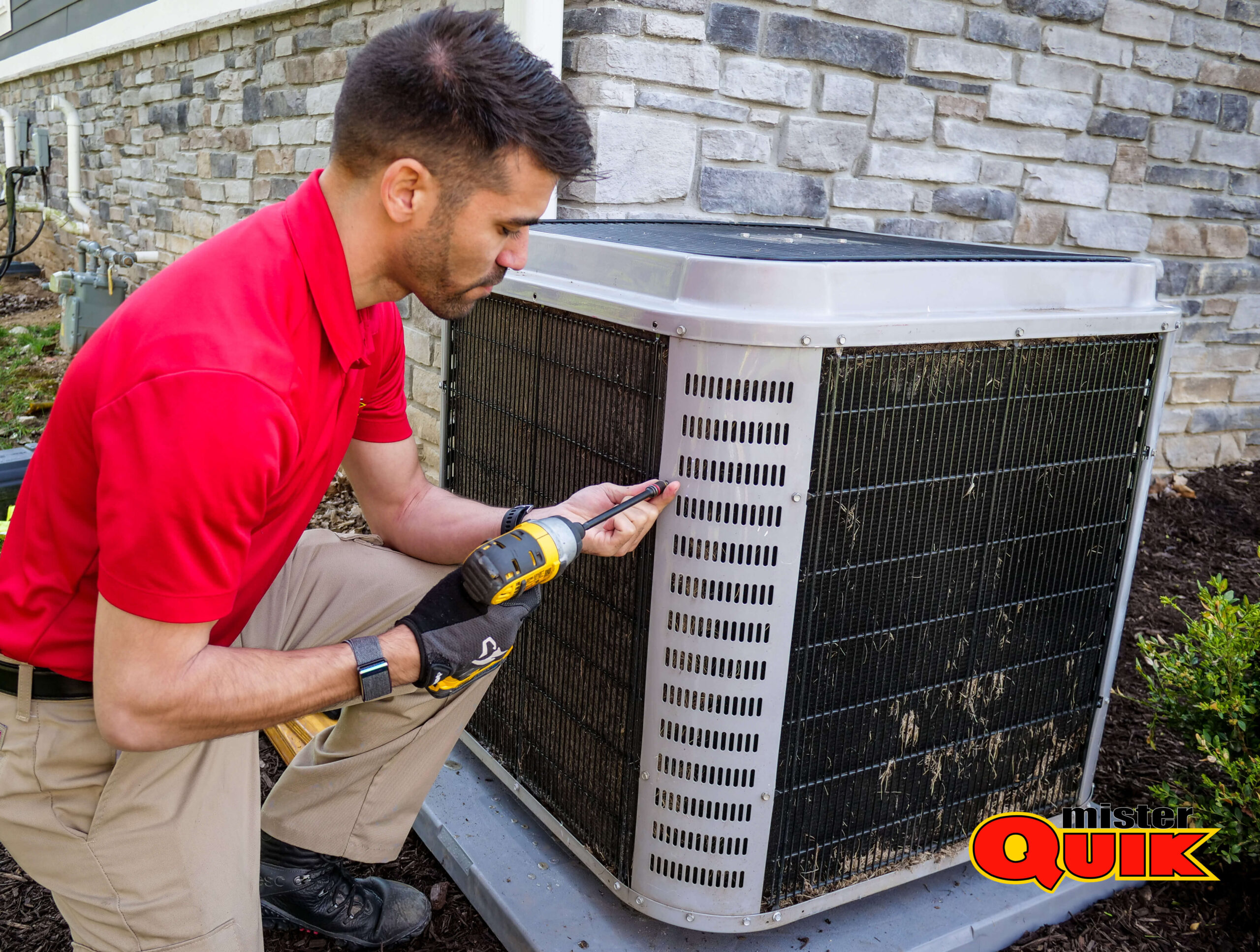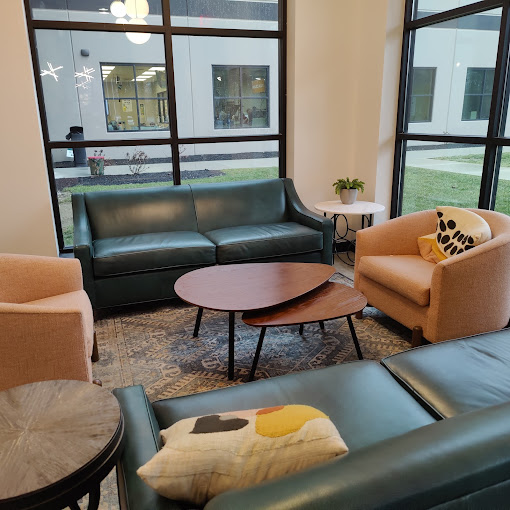Heat Pumps for Homes
Schedule on your own without making a call. Click the button below to get started!

Best Heat Pumps in Fishers
When it comes to finding the best heat pumps in Fishers, you need reliability and efficiency to keep your home comfortable. Here’s why heat pumps could be the solution for you:
- Efficient Heating and Cooling: Heat pumps offer both heating and cooling capabilities, making them versatile for year-round comfort.
- Energy Savings: By utilizing heat transfer rather than generating heat, heat pumps can significantly reduce energy consumption compared to traditional heating systems.
- Consistent Performance: With proper maintenance, heat pumps can provide consistent performance and reliable comfort for years.
- Quiet Operation: Heat pumps operate quietly, ensuring minimal disruption to your daily activities.
- Space-Saving Design: Heat pumps are often compact and can be installed in various locations, making them suitable for homes with limited space.
- Customizable Options: There are various types of heat pumps available, including air-source and ground-source options, allowing you to choose the best fit for your needs and budget.
Whether you’re looking to replace an old heating system or upgrade to a more efficient solution, heat pumps offer a compelling option for homeowners in Fishers. Experience the benefits of heat pumps and enjoy year-round comfort in your home.
Heat Pumps Fishers Cost
Understanding the cost of Heat Pumps services in Fishers is crucial for homeowners facing issues with their systems. Here’s a breakdown of factors to consider:
The cost varies depending on whether you choose an air-source, ground-source, or ductless mini-split Heat Pump.
Larger homes require more powerful Heat Pumps, which can impact the overall cost.
This includes labor costs, permits, and any necessary modifications to your home's existing HVAC system.
While more efficient Heat Pumps may have a higher upfront cost, they can lead to long-term savings on energy bills.
The electricity usage of heat pumps depends on factors such as the climate, the efficiency of the system, and how well the home is insulated. While heat pumps can be highly efficient for both heating and cooling, they do consume electricity to operate. However, compared to traditional heating systems like furnaces, heat pumps can provide significant energy savings, particularly in moderate climates where they can efficiently extract heat from the air or ground. Choosing a high-efficiency heat pump and ensuring proper installation and maintenance can help minimize electricity usage and maximize energy savings.
The average lifespan of a heat pump typically ranges from 10 to 15 years. However, this can vary depending on factors such as usage, maintenance, and environmental conditions. Regular maintenance, including cleaning, inspections, and timely repairs, can help extend the lifespan of a heat pump. Additionally, choosing a high-quality unit and having it installed by a reputable HVAC professional can also contribute to its longevity.
One downside to a heat pump is its reduced efficiency in extremely cold climates, as the system may struggle to extract heat from the outdoor air when temperatures drop significantly below freezing. In such conditions, supplemental heating may be necessary to maintain indoor comfort, which can increase energy costs. Additionally, heat pumps require regular maintenance to ensure optimal performance, and repairs can be costly if components such as the compressor or refrigerant lines fail. Finally, the initial cost of purchasing and installing a heat pump can be higher than that of traditional heating systems, although long-term energy savings may offset this investment.
Yes, a heat pump can heat your whole house efficiently. Heat pumps are capable of both heating and cooling spaces by extracting heat from the outdoor air (or ground, in the case of geothermal heat pumps) and transferring it indoors during colder months. They work similarly to air conditioners but can reverse the refrigeration cycle to provide heating when needed. While heat pumps are generally more efficient in moderate climates, advancements in technology have made them viable heating solutions for a wide range of climates, providing comfort and energy savings throughout the year.
Heat pumps generally require minimal maintenance compared to other heating and cooling systems. Routine maintenance tasks typically include cleaning or replacing filters, inspecting and cleaning coils, and checking refrigerant levels, which can be performed annually by a qualified HVAC technician. With proper maintenance, heat pumps can operate efficiently for many years. However, it’s essential to schedule regular inspections to ensure optimal performance and address any issues promptly.
Heat Pump Vs. Furnace
Choosing between a heat pump and a furnace for your home heating needs requires careful consideration. Here’s a comparison to help you decide which option is best for you:

Heat Pump:
- Pros:
- Efficient for both heating and cooling, providing year-round comfort.
- Environmentally friendly, as they transfer heat rather than burning fuel.
- Can reduce energy bills due to higher energy efficiency.
- Safe operation with no combustion involved.
- Long lifespan with proper maintenance.
- Cons:
- May struggle in extremely cold climates, losing efficiency as temperatures drop.
- Initial installation costs can be higher compared to furnaces.
- Requires regular maintenance to ensure optimal performance.
- May require a backup heating source in colder regions.
Furnace:
- Pros:
- Provides reliable heating, especially in colder climates.
- Quick and powerful heating capabilities, ideal for rapidly warming up a home.
- Lower upfront costs compared to heat pumps.
- Wide availability and compatibility with existing ductwork systems.
- Cons:
- Operates on fossil fuels, contributing to greenhouse gas emissions.
- Less energy-efficient compared to heat pumps, resulting in higher utility bills.
- Requires more frequent maintenance and potential for combustion-related safety concerns.
- Does not offer cooling capabilities, necessitating a separate cooling system.
In conclusion, while both heat pumps and furnaces have their advantages and drawbacks, the choice ultimately depends on factors such as climate, budget, and personal preferences. Consider consulting with a professional to determine the best heating solution for your home.
Are Heat Pumps Worth It?
Are heat pumps worth the investment? Here’s why they might be the right choice for you:
Heat pumps provide both heating and cooling, offering versatile comfort regardless of the season.

Heat pumps use electricity to transfer heat rather than generate it, leading to potential energy savings on heating and cooling bills.
Many regions offer incentives for installing energy-efficient heat pump systems, further enhancing their value.
Heat Pumps in Cold Climates
Are heat pumps effective in cold climates? Here’s what you need to know:
1. Efficiency in Cold Weather
Schedule routine maintenance for your air conditioning system to ensure it operates efficiently. Professional inspections and tune-ups can identify potential problems early on and prevent major breakdowns.
2. Supplemental Heating
In extremely cold conditions, heat pumps may require supplemental heating sources to maintain comfort.
3. Cold Climate Heat Pump Models
Some heat pump models are specifically designed for cold climates, with features like enhanced insulation and variable-speed compressors to improve performance in low temperatures.
4. Defrost Cycles
Heat pumps may periodically enter defrost cycles during cold weather to remove frost buildup on outdoor units, temporarily interrupting heating operation.
5. Proper Sizing and Installation
Ensuring that your heat pump is properly sized and installed by a qualified professional is crucial for optimal performance in cold climates.
6. Insulation and Air Sealing
When in doubt, don’t hesitate to contact a professional HVAC technician, like Mister Quik Home Services, for assistance. Professional technicians can diagnose issues accurately and provide necessary repairs or maintenance to keep your A/C running smoothly.
While heat pumps can still provide effective heating in cold climates, it’s essential to understand their limitations and take steps to optimize performance for maximum comfort and efficiency.
How Do Heat Pumps Work?
Ever wondered how heat pumps keep your home comfortable? Here’s a simple breakdown:
Heat pumps work by transferring heat from one area to another, rather than generating heat.
A heat pump consists of an indoor and an outdoor unit, both crucial for the heat transfer process.
The system uses refrigerant, a substance that easily changes between liquid and gas, to absorb and release heat.
In heating mode, the outdoor unit extracts heat from the air or ground and transfers it inside, warming your home.
In cooling mode, the process is reversed, and heat is taken from inside and released outside to cool your home.
By following these steps and seeking professional assistance when needed, you can effectively address an air conditioning emergency and ensure your home stays cool and comfortable, even during the hottest days of summer.
Troubleshoot Checklist:
- Check if the heat pump is operating efficiently in colder temperatures.
- Consider supplemental heating options for extreme cold conditions.
- Ensure the heat pump is correctly sized and installed by a qualified professional.
- Verify that the outdoor unit is free from obstructions and debris.
- Schedule regular maintenance checks, including cleaning coils and checking refrigerant levels.
- Monitor for any signs of frost buildup on the outdoor unit during cold weather.
- Assess the energy efficiency of the heat pump and consider upgrading to a more efficient model if necessary.
- Explore insulation and air sealing options to improve overall efficiency in cold climates.
- Consider installing a backup heating system to supplement the heat pump during peak demand times.
- Ensure the backup heating system is properly maintained and operational.









